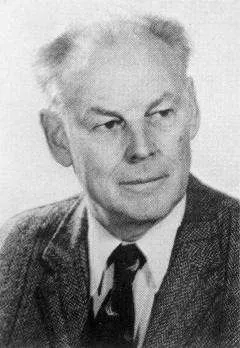In the beginning there was the romantic tradition. The artists, worshipping clay, paint, decibels or words (as the case might be), retreated to their garrets with confused feelings that the French Revolution, which was supposed to have brought about a universal enlightenment, had misfired. The new Bohemians may have considered themselves to be socialists, anarchists or radical democrats, but they actually hungered without knowing it for an aristocratic order that would support them with a quite old-fashioned patronage. That was the way it had been before the damnable bourgeoisie began to scramble for capital to start factories — the “Satanic mills” — and that was the way it should be again.
The romantics were subsequently joined by the Fabian liberals, who sought to use government as a “planning” instrument to refashion society in accordance with supposed scientific principles. Calling themselves intellectuals, the romantics and the Fabians (or Progressives, as they were known in
That was how things stood when, at the end of World War I, the Bolsheviks grabbed the levers of power in
In a remarkable book called The Fellow-Travellers: A Postscript to the Enlightenment (Macmillan, $8.95), David Caute follows the fortunes of three or four generations of intellectuals who were bemused by the Portent in the East through all the hot and cold war days of the middle twentieth century. The story, as Mr. Caute presents it, has the attributes of a great tapestry. The characters come and go, some of them changing their minds, some persisting to the end in holding that Statist Communism, though it might not be considered a good organizational form for a Western nation that had known habeas corpus and other liberties, is an acceptable order for a backward nation that has yet to achieve its industrial revolution.
Biographical Material
As a collection of interweaving biographies The Fellow-Travellers is fascinating. If you want to know whatever became of such Germans as Lion Feuchtwanger, Arnold Zweig, Heinrich Mann and Ernst Toiler, all of whom trusted the Soviets to save their Fatherland from Hitler, you’ll find it here, with a liberal garnishment of historical irony. The British Fellow-Travellers — Harold Laski, George Bernard Shaw, Sidney and Beatrice Webb, the poets (Auden, Spender), the detached socialists (Orwell was the greatest of them until he went to
Shock Waves of Change
What is deficient about Mr. Caute’s vast canvas is its failure to be incisive about the social shocks that brought intellectuals into the Fellow-Travelling orbit or propelled them out of it. The shocks began quite early in the game, with the breaking of the Kronstadt sailors’ mutiny against Bolshevism. The 1929 depression was the biggest shock of all. Then came the counter-shocks: the Soviet man-made famine of the Thirties, the purges, the
Max Eastman once wrote a great essay on the “motive patterns” that brought people to socialism in his time. Some were looking for freedom, others were more interested in order. Naturally the freedom-lover would react to a purge, or a fostered famine (breaking eggs to make an omelette), or the creation of an all-devouring Ogpu, in a different way than a “planner” with a bookkeeping mind would react.
If Mr. Caute had applied Eastman’s motive-pattern test to his characters, he would have come up with more convincing explanations for the evolution of such “defectors” as Dos Passos or Malraux. And he would have been able to come to grips with the nature of many a Fellow-Travelling compromise. In Spain, Fellow-Travellers put up with the Stalin terror because they considered Franco the greater evil. So it was, all through the West, after Hitler had attacked
The McCarthy Period
Mr. Caute is at his best in dealing with the Germans, especially the German Jewish intellectuals. They needed Soviet help to get rid of the Nazis. But when it comes to understanding the so-called McCarthy Period in
McCarthy was not a particularly intelligent student of Communism, and he couldn’t do arithmetic. But there was no academic or journalistic “reign of terror” in the
Mr. Caute writes beautifully about the general Fellow-Travelling ambivalence. But, when he deals with the American scene, he is a bit ambivalent himself.

